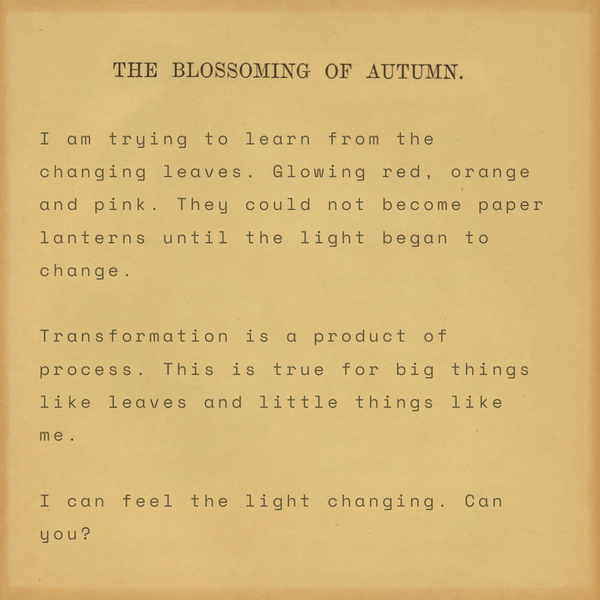My High School Was Full of Boys Like Alex Jones
On fact, fiction, and the origin stories we claim as our own

Originally published by Human Parts
Cleaning the kitchen with a baby in the house requires a two-pronged strategy. First, I make a pile of unbreakable objects. It’s an installation of plastic plates, spatulas, and novelty cups that only a one-year-old can truly appreciate. My daughter and I have a deal. She’ll keep from climbing into the dishwasher as long as I let her take the installation apart and throw it, piece by piece, across the room. The plates and cups bounce harmlessly across the floor and she laughs.
Second, I turn on This American Life. Housework feels less like drudgery when I’ve got Ira Glass leading me through America, one act at a time.
This week’s episode featured a piece on Alex Jones’ origin story by Jon Ronson and Lina Misitzis. If comic books have taught me anything, it’s that all super villains have origin stories. So Alex Jones must have one too. Jones himself has claimed his origin story is dramatic—as a high school student, he uncovered corruption in the police department and was brutally attacked by the police because of it.
The origin story his Texas high school peers recounted to Ronson is slightly more pedestrian: Jones was a malevolent bully who eventually got a taste of what he’d been dishing up.
What had he been dishing up? According to everyone from classmates to coaches, it was a hearty helping of satanic flexing in the halls (complete with a blackened tongue and rolled-back eyes, which all seems a little overdone) and at least one exhaustive pummeling in the classroom. Even 20 years later, the man he beat to the point of unconsciousness in a geography class still needs to, as Ronson put it, “be careful with his skull.”
As I listened, I kept thinking, “What kind of high school was this?” I got my answer when Ronson introduced a woman using a pseudonym. “Ellen” wanted listeners to know she isn’t afraid of Alex Jones, but she chose to be anonymous because she is afraid of the people who follow him.
Ellen said that Jones sat across from her in art class and rubbed his hands back and forth while he told her in graphic detail how he would rape her. He was flagrantly aggressive even in a classroom with a door his victim could have walked through, surrounded by other students as witnesses and a teacher at a desk.
How do you report something that happens every single day?
I should have heard this and nodded, “Ah, he was always a psychopath.” Instead, I nodded because I knew exactly what kind of high school this was. It was the same kind of high school I attended decades later in California.
For four years, I sat in a classroom with a door I could have walked through, surrounded by other students as witnesses and a teacher at a desk. A boy who drew guns every class period held out his notebook of drawings to me and said I’d see one in real life if I didn’t go to the homecoming dance with him. It was a remedial math class and the teacher, who didn’t know our names, only looked up from his computer when discipline was necessary. I was too scared to aggravate the boy any further by involving an indifferent adult.
In biology, a boy at my assigned table told me what fingering was and how he did it to his girlfriend even though she said she didn’t want it. He said he knew what she wanted. Then, after class, he backed me into the end of the hallway, wiggled his fingers in my face and said, “You’d like it. Let me show you some time.” The next day, I asked my biology teacher to switch groups. He asked for a reason, and in my extreme embarrassment, I could only vaguely articulate a discomfort with boys. He said I needed to get used to working with people of the opposite gender.
A boy in honors English leaned over during a reading period and told me he knew another boy who’d cut out my yearbook picture and taped it next to his bed. He said the boy had to clean it off regularly because it got so sticky from cum. He wanted me to know, as a friend.
For years after high school, I thought the way men acted around me was my fault.
In a class called “human relations,” the teacher showed movies he said depicted the human condition. We watched everything from Schindler’s Listto Can’t Buy Me Love. His definition of meaningful human stories was expansive, I guess. Many of these movies had explicit sex scenes. In one, a man pushed a woman against a wall and held her up while penetrating her. Two boys in the class started making a list of girls small enough to hold while penetrating. They debated whether I and another girl in the class belonged on the list. I don’t know if the teacher heard them. But they sat three desks from his desk and five from mine. I could hear them.
There was the time a boy sat next to a group of girls and me and said he could smell fish; the time a boy told a horrified friend and me that lots of girls like to be raped and that’s why they squeal; the time another boy loudly described, shot by shot, the porn he’d watched that weekend and then said he kept picturing a virgin like me as the woman in the film. There were the hundreds of times I heard boys talk about the importance of a tight pussy, gang bangs they swore happened at a party over the weekend, and which girls did what with whom and for how long.
I stayed quiet through this because I was bewildered. Most of the weaponized words and concepts were unfamiliar to me. I didn’t tell the teachers because I believed they already knew and did nothing. I didn’t confide in my parents because I thought it was my job to stay above things that were beneath me, even when they were happening to me. And, frankly, none of it seemed extraordinary enough to warrant the escalation. How do you report something that happens every single day?
At the end of the podcast, the big reveal is that Alex Jones has not been created by any one moment. As far as private recollection and public record can tell, he has always been some version of the person he is now. He’s always created chaos for chaos’ sake. Alex Jones claims an origin story for the same reason he claims so many other things—he wields more power in a world of fiction than a world of fact.
Jones isn’t the only one eager for a beginning to justify his end. Our culture is obsessed with inflection points that explain everything. People trace the emergence of cancer to the moment when humans stopped eating “clean” foods, autism to vaccinations, the horrors of modern society to the moment when we stepped out of a pastoral (and purely fictional) past to a machinated present. Of course, it’s all nonsense.
But when people are afraid or outstripped or outdone, there is comfort in tracing confusing outcomes back to a single point. We think if we can isolate and understand that one instant, we can keep it from happening again.
I wasn’t so different. For years after high school, I thought the way men acted around me was my fault. I caused reactions or didn’t cause reactions. I made them feel too comfortable or not comfortable enough. My inadequate stewardship of my femaleness was the origin of every bad behavior. When things went wrong, I was the moment that needed to be kept from happening again.
Origin stories fit into comic books because they are too flat for reality. The boys that harassed the halls of my high school came from varied socioeconomic, ethnic, and religious backgrounds. I was not the single point that explained them. Life isn’t InfoWars, there is no conspiracy, there is no secret beginning that explains the end. There is only action and inaction.
Why did no one step in on Ellen’s behalf? Why did no one speak up for me?Those classrooms felt big when I was kid, but I now know they were small. The teachers should have been bigger. Had they already given up? Did they think the students, and the world they would shape, were already versions of what they’d always be?
I may not believe in single-point origin stories, but I do believe in stories, and those years have become an inextricable part of mine. When I left that school, I was no longer a version of the self I’d always been. I didn’t leave high school afraid of those boys; I left afraid of every boy who followed them.
The hardest part of giving up origin stories has been giving up the reckonings they seem to make possible. It is easy to measure and mete when dealing with curated points occupying otherwise empty space. It is difficult when dealing with what life mostly is—a disordered, discordant swirl of chemicals, perceptions, experiences, history, and myth. The question that hangs over me most days is how to equip my daughters to live in a world where a reckoning is always promised but will never come.
When Ira Glass signed off till next week, the counters were cleared, the floors swept and the dishes done. I picked up my daughter from her pile of plastic and buried my face in her neck. As I breathed her in, I wondered if I’ll know when it’s time to let her throw things and watch them break.




